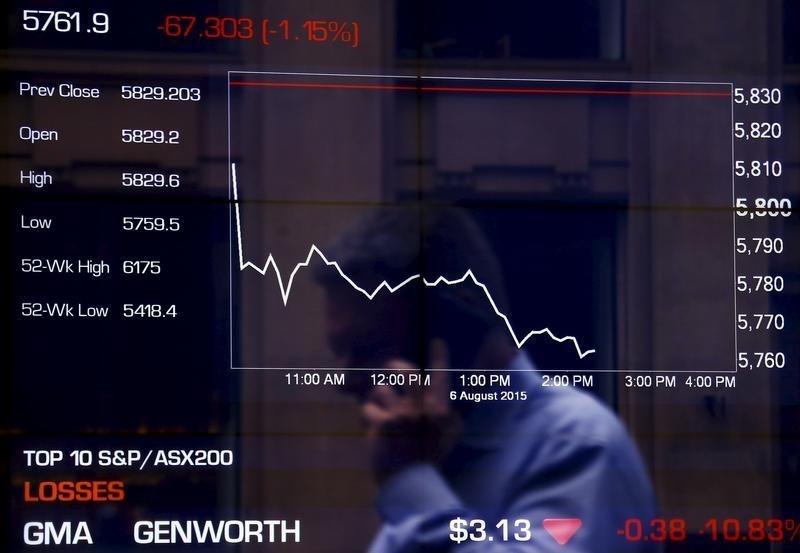Australian shares surged in a broad-based rally on Friday, bolstered by strong gains on Wall Street following robust U.S. retail sales data. The positive data helped alleviate concerns about an imminent recession in the world's largest economy, sparking optimism among global investors.
The S&P/ASX 200 Index (AXJO) rose by 1.3% to 7,968.6 points, marking its sixth consecutive session of gains. The benchmark index is now on track to achieve its best weekly performance since December, driven by a renewed sense of economic stability.
U.S. Markets Lead the Way
The rally in Australian markets was largely influenced by the overnight performance of U.S. markets, where the Dow Jones Industrial Average (DJI) climbed 1.39% to close at 40,563.06 points. The S&P 500 (SPX) gained 1.61%, while the tech-heavy Nasdaq Composite Index (IXIC) surged 2.34%.
The positive momentum in the U.S. was fueled by data showing a 1.0% increase in retail sales, significantly exceeding market expectations. This strong consumer spending data helped ease fears of a sharp economic slowdown, which had been heightened by last week's unexpected rise in the unemployment rate. As a result, traders scaled back their expectations that the Federal Reserve would be forced into aggressive monetary easing in the upcoming month.
Sector Highlights: Mining and Banking Lead Gains
In Sydney, the rally was led by heavyweight mining stocks, with the S&P/ASX 300 Metals & Mining Index (AXMM) rising 2.1%. This gain was supported by an 0.8% increase in Chinese iron ore futures on the Dalian Commodity Exchange, signaling continued demand from Australia's largest trading partner.
Banking stocks also contributed to the market's strength, with the S&P/ASX 200 Financials Index (AXFJ) adding 1.4%. Notably, shares of National Australia Bank (ASX:NAB) rose 1.2% despite the bank reporting a drop in its third-quarter cash earnings. However, investors were encouraged by the bank's lower-than-expected credit impairment charges, which provided some relief amid broader concerns about the financial sector.
Energy stocks also advanced, with the S&P/ASX 200 Energy Index (AXEJ) climbing 2%. This occurred despite a slight decline in Brent crude futures, which fell 0.15%, and U.S. West Texas Intermediate (WTI) crude, which lost 0.23%. Both benchmarks, however, were on track for weekly gains, reflecting resilience in the energy market.
Tech, gold, and healthcare sectors also saw positive movements, with sub-indexes for these sectors advancing between 0.9% and 1.7%, contributing to the overall market's upward trajectory.
ASX Ltd Faces Pressure Amid Profit Miss
On the downside, shares of ASX Ltd (ASX.AX) dropped as much as 3.3% after the bourse operator reported a nearly 3% decline in annual underlying profit, which fell short of market expectations. The disappointing results weighed on the stock, making it one of the few laggards in an otherwise strong session for the broader market.
New Zealand Market and Synlait Milk Surge
Meanwhile, across the Tasman Sea, New Zealand's benchmark S&P/NZX 50 Index (.NZ50) rose 0.3% to close at 12,745.43 points. In corporate news, shares of Synlait Milk (SML.NZ) soared 15% after the dairy company, along with its shareholder a2 Milk (ATM.NZ), resolved disputes over exclusive manufacturing rights. The resolution of the dispute sent a2 Milk's shares up by more than 4%, boosting sentiment in the New Zealand market.
